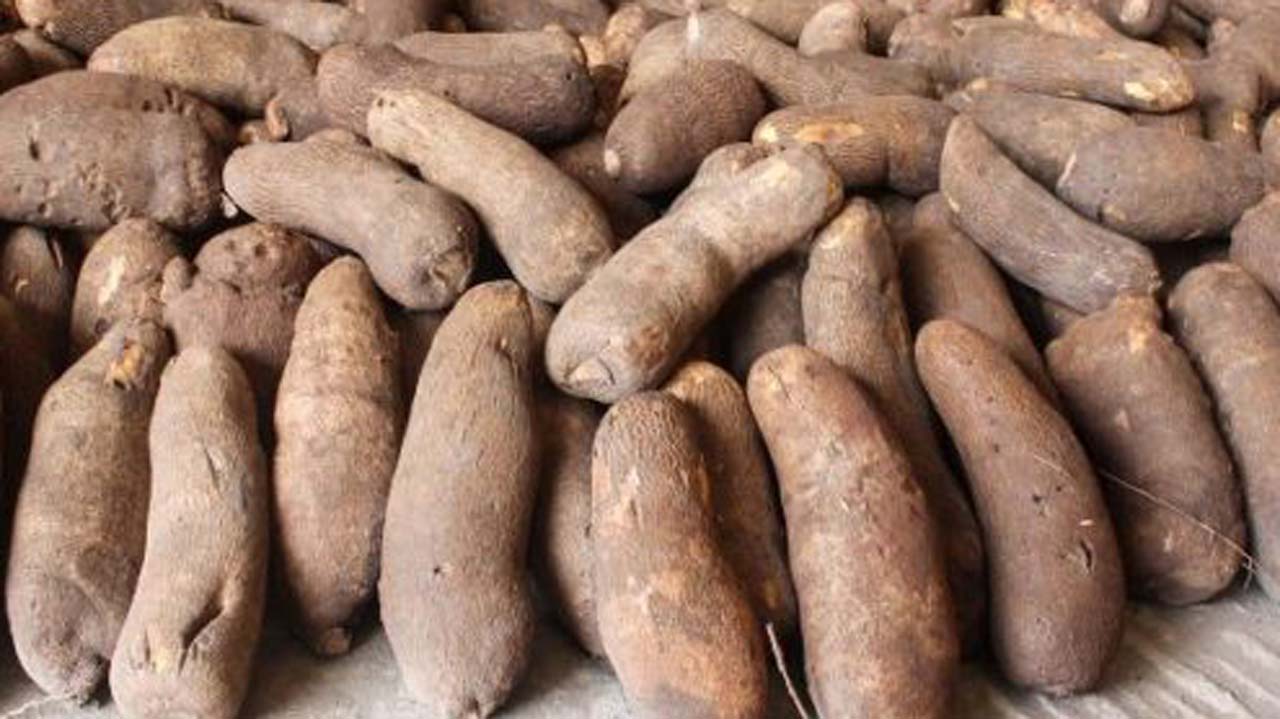
Some exporters of yam to UK and the U.S. have debunked certain media reports, purporting that the yams exported after the launch of the initiative were rejected at their export destinations.
A statement by Dr Olukayode Oyeleye, Special Adviser, Media and Communications to the Minister of Agriculture, in Abuja on Wednesday said that the exporters stressed that the reports, initially aired by a local television network, were false.
Oyeleye said that the yam export initiative, which was launched at Lilypond Container Terminal, Lagos, by the Minister of Agriculture and Rural Development, Chief Audu Ogbeh, had attracted widespread criticisms on various media platforms due to the misleading reports
“The concerned exporters and other prospective exporters have expressed worries about the potential impact of the negative publicity on their prospects at the export market, in the wake of Federal Government’s initiative on diversification of the economy through agricultural produce export.
“Most commentators and analysts in the mainstream and social media have retailed the negative aspect of the laudable initiative and have played up the wrong versions of the export story.“Discussions with the exporters have since shown the prevailing storyline as inappropriate and misleading,’’ he added.
Oyeleye said that the yam exporters had emphatically said that their consignments were successfully cleared at ports in UK and the U.S. and delivered to their various warehouses.
“The exporters said that although some cases of tuber spoilage were reported in both cases, the bad ones were separated from the good ones, and the good ones were distributed to the buyers.
“The exporters noted that Ghana, which has been exporting yams for a while, routinely records cases of tuber spoilage without making an issue of it; and their yams don’t get rejected as a result, he said.
Oyeleye said that Mr Michael Adedipe of ADES UK Foods and Drinks, whose warehouse was visited by television station, had denounced the TV report and subsequent commentaries on the rejection of his yams by the British authorities.He quoted Adedipe as saying: “The yams consignment was not rejected, it was cleared.
“I have watched the television programme which lasted for about two hours; all the positive stuff has been removed.“We that decide to venture into this project are aware of the risks involved because yam is fresh produce; so we will expect five to 10 per cent damages.
“I don’t know why they said that the produce got rejected. I’ve sent my release note; I’ve sent the video of the loading; I’ve even sent relevant documents to say that there is no issue like that at all.
“In spite of the sour experience with the media report, I am sustaining my investment; I still expect to take at least a container of yams from Nigeria every week.’’
Besides, Oyeleye said that Mr Yandev Amaabai, Managing Director, Wan Nyikwagh Farms Nigeria Ltd., had similarly condemned the yam rejection report.“The story from television station was focused on UK. So far, I am the only person who has lifted yams to the U.S.
“Whatever we can do to clarify this issue will be good. We learn as we progress and the whole idea was to diversify the economy.“Yams are perishable items; definitely, some yams may go bad in transit. But the report says that the American government rejected Nigerian yams; where did those yams come from?“Ghana, which produces 4.8 million tonnes of yams, according to 2008 estimates, occupies a niche as the leading exporter of the crop, accounting for over 94 per cent of total yam exports from West Africa.
“Nigeria, which is by far the world’s largest producer of yams, accounting for over 70 to 76 per cent of the world production, producing 35.017 million tonnes of yams, going by the 2008 estimates, should do better than Ghana in the export market
“Ghana is the first country in West Africa to launch its national yam development strategy in 2013.“The country aims at generating 5 billion U.S. dollars through yam exports by 2018. Nigeria, which produces seven times higher than Ghana’s production volume, is beset with criticisms over attempts to bring its yam to the global yam market.
“There are more Nigerians than Ghanaians in these countries, meaning there are more prospects for Nigerian yam exporters,’’ Amaabai was quoted as saying.
Meanwhile, the minister of agriculture and rural development has expressed dismay at the negative news trailing the nascent efforts to put Nigeria on the global yam export market.Ogbeh said: “We are not going to stop because this is not enough to demoralise us. We have food to export; never mind what the so-called critics are doing.
“We are going to talk to the port authority to provide cooling vans for vegetables and fresh produce so that exporters do not lose money, while we do not lose face.“We should begin to build cold trucks that are temperature-controlled to keep the yams till the time they have to go; we should invest in special containers for their storage.
“We will go ahead with our efforts to export yam; we are determined to reposition our people to capture the investment opportunities and benefits in yam exports to these countries.
“We will, however, emphasise global best practices, engage with world-class experts and international organisations as well as leverage the strength in indigenous knowledge.
“We have commenced engagement with the National Assembly for the repeal of the 1989 law that prohibits export of yams and other agro-commodities; the bill has passed the second reading at the National Assembly.
“The continued existence of this law is an obstruction against the economic diversification and export initiative of this administration.
“We plead with the National Assembly to fast-track the repeal of the law and help us further unlock our export potential.’



